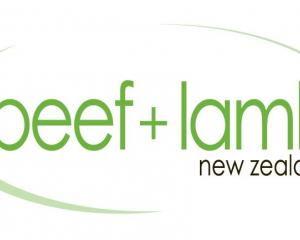
Over a year the leaders of Hustle AR1, Trojan NEA2 and Governor each produced a yield of 13,000 kilograms of dry matter a hectare .
Latest results from the the trials are now available to help farmers select ryegrass cultivars most suited to their farm environment and system.
The trials have been running since 1991, set up by the New Zealand Plant Breeders and Research Association (NZPBRA), which represents plant breeders, owners and managers of proprietary agricultural seed and endophytes.
Up to 40 trials are run across the country each year, testing the performance of perennial, Italian, annual and hybrid ryegrasses with various endophyte combinations.
They are evaluated to give performance rankings in each region for the upper North Island, lower North Island, upper and lower South Island.
For the upper South Island Request AR37 was the most productive for early spring production in August and September, followed by Reason AR37 and Samson AR37. They produced 2000-plus kilograms of DM/ha over the period.
AberGreen AR1, Halo AR1 and the tetraploid AberGain were top performers in the late spring period of October and November, growing more than 3500kg dm/ha.
Over summer, Trojan NEA2, Hustle AR1 and the tetraploid Base AR37 each grew more than 4000kg dm/ha while Legion AR37, Reason AR37 and Governor AR1 were the top performers over autumn, each producing over 25000kg dm/ha.
During winter, the Avatar NEA2 tetraploid, Trojan NEA2 and Regan AR37 were the most productive cultivars, each growing more than 1000kg dm/ha.
The NZPBRA also has results for hybrid, Italian and annual ryegrasses.
Cropmark marketing manager Garry Begley said the trials would give farmers confidence in their decisions when selecting ryegrass cultivars most suitable for their farm environment.
Cultivars were also given an overall national ranking based on trial results, he said.
"It’s a comprehensive summary of the overall performance of the material entered into the trial."
He said it was important the trials were a joint industry operation as it gave them independence and validation.
The trials are administered by the association’s forage technical committee and run to industry-agreed protocols by independent trial operators and PBRA members.
Inspections and audits are carried out to ensure they are followed at all times.
Mr Begley said seed companies also carried out in-house trials on a large amount of genetic material and the best cultivars from these are put forward for evaluation by the national trials.
Cultivars are ranked based on yield, seasonality, nutritional value and persistence against those put forward by other companies.
"Like all seed companies, we’re looking for strong genetic improvement in our material."
Cropmark then makes a decision on whether to commercialise a cultivar based on the NFVT results.
Germinal Seeds plant breeding trials manager Fiona Foley said farmers could access the results and summaries of trial data on PBRA’s website and see how different cultivars performed regionally and nationally.
Ms Foley said an independent statistician analysing the results should give farmers greater confidence in the data.
She said the company carried out its own research and development, as well as entering new cultivars in the NFVT to see how they performed against other new and established cultivars in a range of environments.















